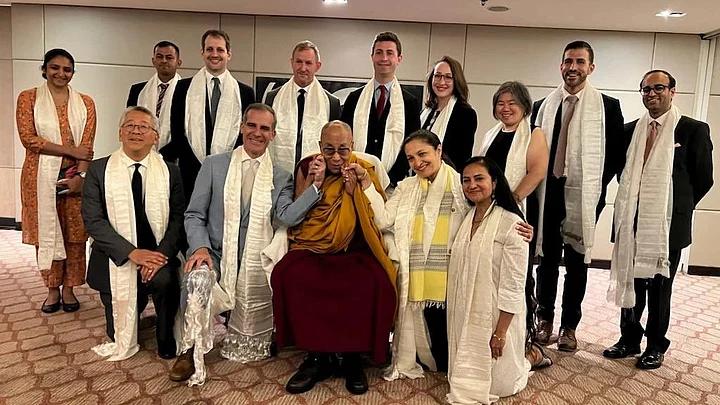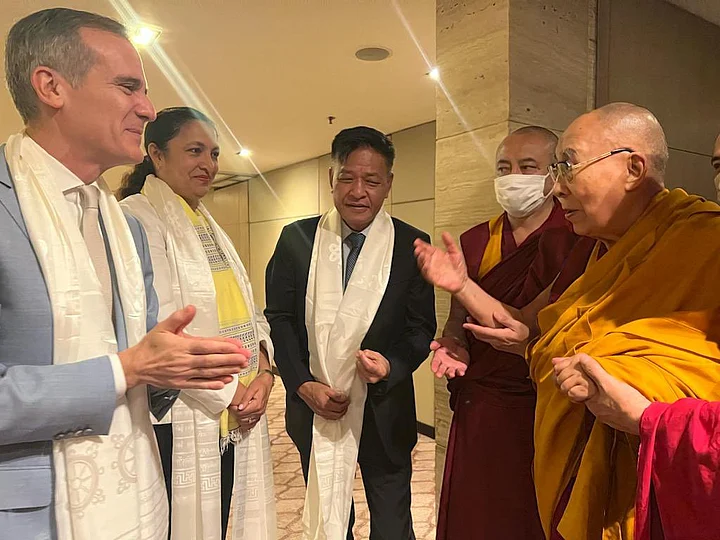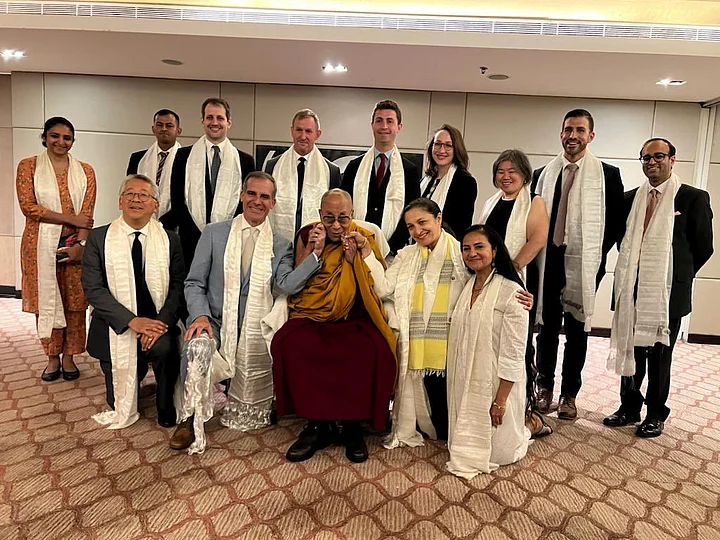In a move that has sparked anger and condemnation from China, US Under Secretary for Civilian Security, Democracy, and Human Rights Uzra Zeya held a meeting with Dalai Lama during her visit to India on Sunday, 9 July 2023.
The Chinese embassy in New Delhi immediately responded, firmly stating that Tibet's affairs are internal matters of China and should not be interfered with by external forces.
China's vehement opposition to the meeting and its call for the US to stop meddling in its internal affairs has once again strained relations between the two countries.
On Monday, 10th July, the Chinese embassy strongly expressed its disapproval of the meeting between the US Special Coordinator for Tibetan Issues, Uzra Zeya, and the Dalai Lama, stating, "Xizang (Tibet) affairs are purely internal affairs of China, and no external forces have the right to interfere."
They called on the US to honour its commitment to acknowledging Tibet as part of China and to cease meddling in China's internal affairs under the pretext of Tibet-related issues. China reiterated its opposition to any contact between foreign officials and the "Tibetan independence" forces.
"The US should take concrete actions to honour its commitment of acknowledging Xizang as part of China, stop meddling in China’s internal affairs under the pretext of Xizang-related issues, and offer no support to the anti-China separatist activities...," the statement said.
The statement also criticised the Dalai Lama, the exiled leader of Tibet, which it annexed in 1950. The statement contended that the Dalai Lama is not "just a religious figure, but rather a political exile who has long been engaging in anti-China separatist activities".
The Tibetan government in exile is a "separatist political group and an illegal organisation completely in violation of China's Constitution and laws", the statement claimed.
Uzra Zeya's visit to India comes in the wake of concerns expressed by US representatives regarding the country's humanitarian situation and internal violence. While her primary objective is to promote shared solutions to global challenges, her involvement in Tibetan issues has reignited tensions with China.
Accompanied by Assistant Secretary of State Donald Liu and a senior official from the US Agency for International Development (USAID), she is scheduled to meet with Viney Cuatra, the Foreign Secretary of India, and other officials from the Ministry of External Affairs. Their discussions will encompass a wide range of topics, including humanitarian concerns, human rights, and the inclusion of marginalised groups.
On July 9th, Zeya tweeted:
"Namaste, New Delhi! Look forward to productive meetings with Government of India & civil society leaders building on momentum of @narendramodi 's historic State Visit. Together, we are working toward a world that is more open, prosperous, secure, inclusive & resilient!"
After her visit to India, Uzra Zeya will proceed to Bangladesh from 8 July to 14 July, where she will continue to address humanitarian concerns, labour issues, and human rights, as stated by the US Department. The focus of her discussions will particularly be on the plight of over a million Rohingya refugees from Myanmar who have sought refuge in Bangladesh. This highlights the United States' dedication to advocating for the rights and well-being of displaced populations.
Uzra Zeya's visit to India and Bangladesh signifies a noteworthy diplomatic endeavour by the United States to enhance bilateral relations, uphold human rights, and tackle global challenges.
Nevertheless, China's vehement reaction to the meeting between Zeya and the Dalai Lama highlights the persisting tensions between the two nations and their contrasting viewpoints on Tibet-related matters.
The results of this diplomatic engagement will undoubtedly carry broader implications for the geopolitical landscape and the pursuit of collective resolutions to global challenges.
(At The Quint, we question everything. Play an active role in shaping our journalism by becoming a member today.)




